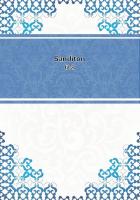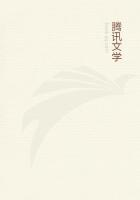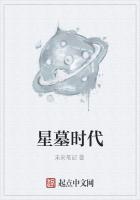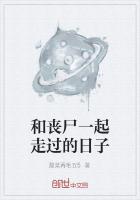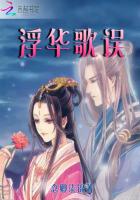Laura found time to be astonished.What! She had first met this man haughtily, in all the panoply of her "grand manner," and had promised herself that she would humble him, and pay him for that first mistrustful stare at her.And now, behold, she was studying him, and finding the study interesting.Out of harmony though she knew him to be with those fine emotions of hers of the early part of the evening, she nevertheless found much in him to admire.It was always just like that.She told herself that she was forever doing the unexpected thing, the inconsistent thing.Women were queer creatures, mysterious even to themselves.
"I am so pleased that you are enjoying it all," said Corthell's voice at her shoulder."I knew you would.
There is nothing like music such as this to appeal to the emotions, the heart--and with your temperament"Straightway he made her feel her ***.Now she was just a woman again, with all a woman's limitations, and her relations with Corthell could never be--so she realised--any other than ***-relations.With Jadwin somehow it had been different.She had felt his manhood more than her womanhood, her *** side.And between them it was more a give-and-take affair, more equality, more companionship.Corthell spoke only of her heart and to her heart.But Jadwin made her feel--or rather she made herself feel when he talked to her--that she had a head as well as a heart.
And the last act of the opera did not wholly absorb her attention.The artists came and went, the orchestra wailed and boomed, the audience applauded, and in the end the tenor, fired by a sudden sense of duty and of stern obligation, tore himself from the arms of the soprano, and calling out upon remorseless fate and upon heaven, and declaiming about the vanity of glory, and his heart that broke yet disdained tears, allowed himself to be dragged off the scene by his friend the basso.For the fifth time during the piece the soprano fainted into the arms of her long-suffering confidante.
The audience, suddenly remembering hats and wraps, bestirred itself, and many parties were already upon their feet and filing out at the time the curtain fell.
The Cresslers and their friends were among the last to regain the vestibule.But as they came out from the foyer, where the first draughts of outside air began to make themselves felt, there were exclamations:
"It's raining."
"Why, it's raining right down."
It was true.Abruptly the weather had moderated, and the fine, dry snow that had been falling since early evening had changed to a lugubrious drizzle.A wave of consternation invaded the vestibule for those who had not come in carriages, or whose carriages had not arrived.Tempers were lost; women, cloaked to the ears, their heads protected only by fichus or mantillas, quarrelled with husbands or cousins or brothers over the question of umbrellas.The vestibules were crowded to suffocation, and the aigrettes nodded and swayed again in alternate gusts, now of moist, chill atmosphere from without, and now of stale, hot air that exhaled in long puffs from the inside doors of the theatre itself.Here and there in the press, footmen, their top hats in rubber cases, their hands full of umbrellas, searched anxiously for their masters.
Outside upon the sidewalks and by the curbs, an apparently inextricable confusion prevailed; policemen with drawn clubs laboured and objurgated: anxious, preoccupied young men, their opera hats and gloves beaded with rain, hurried to and fro, searching for their carriages.At the edge of the awning, the caller, a gigantic fellow in gold-faced uniform, shouted the numbers in a roaring, sing-song that dominated every other sound.Coachmen, their wet rubber coats reflecting the lamplight, called back and forth, furious quarrels broke out between hansom drivers and the police officers, steaming horses with jingling bits, their backs covered with dark green cloths, plunged and pranced, carriage doors banged, and the roll of wheels upon the pavement was as the reverberation of artillery caissons.
"Get your carriage, sir?" cried a ragged, half-grown arab at Cressler's elbow.
"Hurry up, then," said Cressler.Then, raising his voice, for the clamour was increasing with every second: "What's your number, Laura? You girls first.
Ninety-three? Get that, boy? Ninety-three.Quick now."The carriage appeared.Hastily they said good-by;hastily Laura expressed to Mrs.Cressler her appreciation and enjoyment.Corthell saw them to the carriage, and getting in after them shut the door behind him.They departed.
Laura sank back in the cool gloom of the carriage's interior redolent of damp leather and upholstery.
"What an evening! What an evening!" she murmured.
On the way home both she and Page appealed to the artist, who knew the opera well, to hum or whistle for them the arias that had pleased them most.Each time they were enthusiastic.Yes, yes, that was the air.
Wasn't it pretty, wasn't it beautiful?
But Aunt Wess' was still unsatisfied.
"I don't see yet," she complained, "why the young man, the one with the pointed beard, didn't marry that lady and be done with it.Just as soon as they'd seem to have it all settled, he'd begin to take on again, and strike his breast and go away.I declare, I think it was all kind of foolish.""Why, the duke--don't you see.The one who sang bass----"Page laboured to explain.
"Oh, I didn't like him at all," said Aunt Wess'.
"He stamped around so." But the audience itself had interested her, and the decollete gowns had been particularly impressing.


